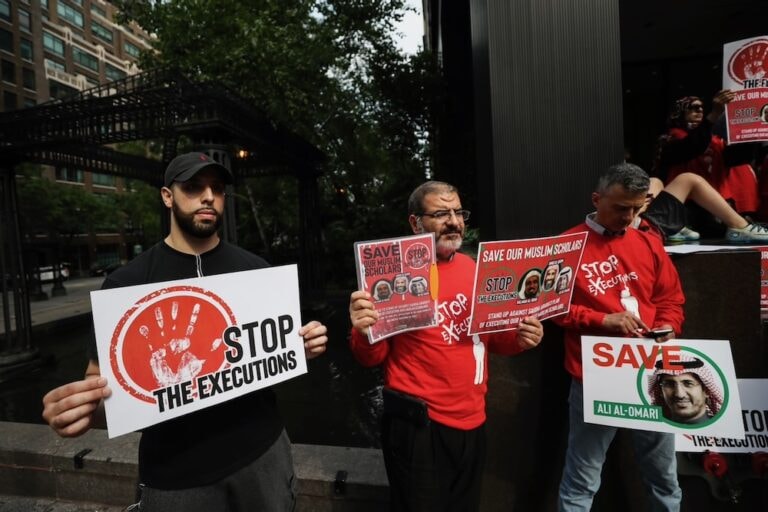Hamza Kashgari was imprisoned following tweets he posted in February 2012, recounting an imaginary conversation with the Prophet Mohammed, and viewed as blasphemous by authorities.
Freedom House welcomes the release of Saudi writer Hamza Kashgari, who was imprisoned following Tweets he posted in February 2012, recounting an imaginary conversation with the Prophet Mohammed, and viewed as blasphemous by authorities.
The fact that Kashgari was imprisoned demonstrates the abusive power of blasphemy laws, and Freedom House remains concerned with the climate for free expression in Saudi Arabia. The same day Kashgari was released, Saudi lawyer Waleed Abu al-Khair was sentenced to three months in prison after signing on to a letter calling for reforms in the country.
In February 2012, Kashgari was deported from Malaysia back to his home country of Saudi Arabia. Kashgari had left Saudi Arabia to escape death threats he received after his Tweets. Malaysia – like Saudi Arabia – imposes harsh punishments on those who violate blasphemy laws. While Kashgari removed his posts and apologized for any offenses, the Saudi government issued an arrest warrant, and a fatwa was issued calling for his prosecution. He was denied legal counsel and detained on February 9 in Malaysia. Kashgari was taken back to Saudi Arabia, where he was detained for almost two years without a trial.
Defamation is a criminal offense in Saudi Arabia, and any form of expression – including online posts – that insults Islam or is blasphemous is punishable by death. Kashgari’s arrest is not the first instance in which online postings resulted in blasphemy charges. Raif Badawi, the cofounder of website Free Saudi Liberals – a forum for discussing political and religious topics – is serving a seven-year prison sentence.


